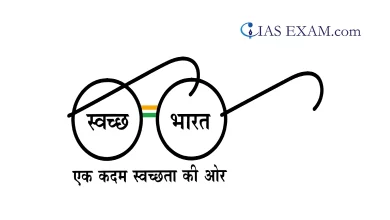Recalibrating Non-Personal Data and its Significance
GS Paper 2 - Govt. Policies & Interventions, Fundamental Rights

Context
The transformational potential of digitization in India’s journey towards a USD 5 trillion economy is undeniable. However, the rapid digitization of government operations is leading to a significant increase in the amount of citizen data being generated With data and AI poised to become key drivers of economic growth, the recalibration of Non-Personal Data (NPD) assumes paramount importance.
About Non-Personal Data
- Any data that is not categorized as Personal data is termed as Non-Personal Data. In terms of origin, NPD can be the data which is never related to natural persons (such as data on weather or supply chains), or data which was initially personal data, but has been anonymised (through use of certain techniques to ensure that individuals to whom the data relates to cannot be identified).
- Types of NPD
- Public Non-Personal Data: Data collected or generated by the government in the course of publicly funded works.
- Community Non-personal Data: Raw or factual data (without any processing) which is sourced from a community of natural persons. For example, datasets collected by municipal corporations or public electric utilities.
- Private Non-Personal Data: Data which is collected or generated by private entities through privately owned processes (derived insights, algorithms or proprietary knowledge).
- NPD constitutes the primary kind of citizen data obtained by the government, which possesses the potential of serving as a ‘public good’. To create synergies and devise scalable solutions, integration of NPD in the dispensation of public services is generally being advocated for.
- The National Strategy for Artificial Intelligence, for instance, contemplates making some types of government data available for the ‘public good’ and mandating corporations to share aggregated data, as a means of overcoming the hurdle of limited data access within India’s AI ecosystem.
Concerns with NPD
- Unlike personal data, which contains explicit information about a person’s name, age, gender, sexual orientation, biometrics and other genetic details, non-personal data is more likely to be in an anonymised form. However, in certain categories such as data related to national security or strategic interests such as locations of government laboratories or research facilities, even if provided in anonymised form can be dangerous.
- Unlike Personal Data, there is a stark absence of regulation for NPD. As of date, less efforts have been made at the executive level to construct governance policies for the same.
- A government committee headed by Infosys co-founder Kris Gopalakrishnan in 2020 has suggested that non-personal data generated in the country be allowed to be harnessed by various domestic companies and entities, which raises significant concerns. The data sets will heavily favor big tech companies. Only big tech companies possess the capital and infrastructure to create such large volumes of data.
- The reality of mixed datasets and the inevitable overlap between the two means that a clear demarcation is not tenable. While it may be possible for data to be non-human and non-personal, the distinction becomes murky when data is derived from an individual, especially considering the challenges of anonymisation.
- The unprotected inter-flow of NPD across government departments, third-parties, and citizens can make sensitive aspects of NPD vulnerable due to privacy breaches. This can unfairly benefit capacity-carrying actors like Big Tech.
Measures to be adopted to harness NPD
- A critical evaluation of the NPD Framework to address the existing gaps will be beneficial. This will supplement MeiTY’s effort to regulate NPD and will help forge data exchanges as suitable media to make NPD interoperable across sectors.
- Data exchanges are scalable ecosystems which galvanize multiple stakeholders. This makes them a fertile ground for deploying advanced analytics for outcome-oriented decision making and helps achieve economies of scale.
- Policymakers must prioritize the development of a robust governance framework that promotes data sharing, transparency, and accountability. This framework should outline clear guidelines for data collection, processing, and utilization, while also safeguarding privacy and ensuring equitable access to data resources.
- Moreover, initiatives to build data infrastructure, capacity, and literacy are essential to empower stakeholders and promote responsible data stewardship.
- The Expert Committee constituted by the MeiTY recommended establishing ‘data business’ as a new category of business in the country. Entities (including government agencies) which collect, process or store data beyond a threshold (as specified by the regulator) will be classified as data businesses.
Way Forward
NPD holds promise as a ‘public good’ and can enhance public services, its unregulated status poses risks, including de-anonymisation and unfair advantages for certain entities. The recalibration of Non-Personal Data is indispensable in India’s quest for digital transformation and economic prosperity. By harnessing the power of NPD, India can unlock new opportunities for innovation, entrepreneurship, and inclusive growth.
SOURCE: The Hindu





.png)



